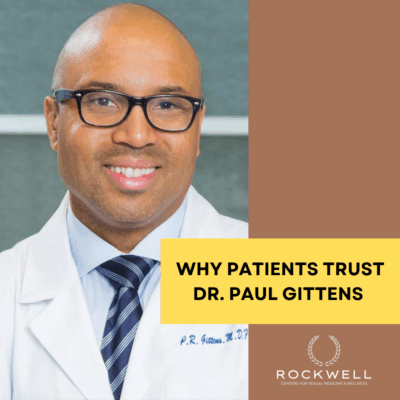When I’m asked, Doc, what are the symptoms of erectile dysfunction (ED)? This is how I answer: Symptoms of ED can be crushing, squeezing chest pain and sweating and vomiting from what may feel like heartburn or indigestion. Other signs could be confusion, the inability to use one-half of your body or discomfort in the legs when walking. What I just described are the signs of a heart attack, stroke, and vascular disease.
So, what do these symptoms have to do with erectile dysfunction?
After the onset of ED, about 30% of men will eventually experience these symptoms. Also, men that have suffered any of these vascular events have a higher rate of ED. Why? Having a heart attack or stroke in most cases tells us that the body’s blood vessels are not healthy. These blood vessels bring much-needed oxygenated blood to organs like the heart and brain. When a man has a heart attack or stroke, the blood-flow to the heart or the brain is compromised and this leads to death of cells and the symptoms previously described. So, when heart cells begin to die, you get crushing chest pain, and when brain cells are compromised, you get symptoms of a stroke.
Let’s take a step back and focus on the penis and erections.
When a man gets aroused, blood rushes to the penis and within seconds an erection is born. Now, the link to vascular disease: The vessels in the penis are extremely small, much smaller than the blood vessels that feed the heart and brain. Changes in the functionality of these small vessels in the penis are quickly noticed by a man. These changes sometimes occur several years before the first signs of a stroke or heart attack. So your ED is like your penis waving a warning flag to do something now about vascular disease. Yes, some men are lucky and their ED is not preceded by brain or heart cell damage, but ED still indicates that you should make some changes to improve your health.
Buy one, get one free!
Managing diabetes, high blood pressure, or high cholesterol is critical for your penis health. And the link between ED and cigarette smoking is very strong. So, by focusing on the healthy life goals of not smoking, healthy eating, and exercise, you will reduce the likelihood of ED and the likelihood of having a stroke or heart attack.
This article was written by Paul Gittens, MD, FACS.
Dr. Gittens heads the Philadelphia Center for Sexual Medicine and is a leading expert in treating erectile dysfunction. He is board certified and fellowship trained in sexual dysfunction and recognized by the American Academy of Surgeons. Request a Consultation.













